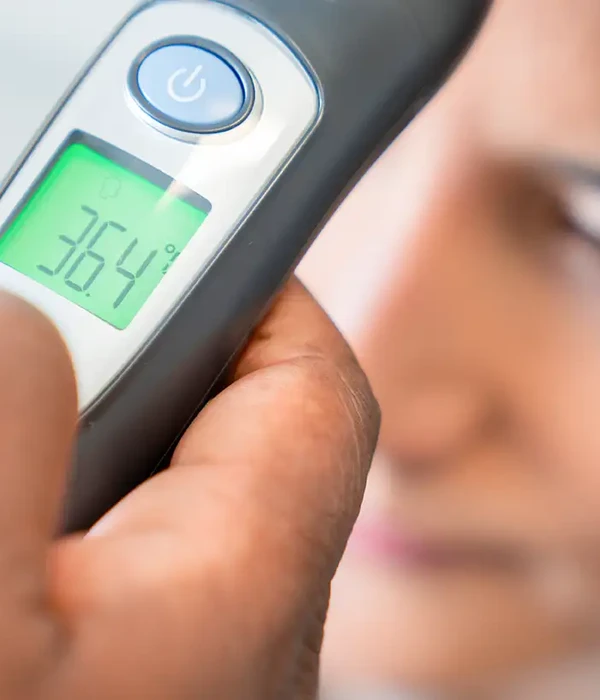Burnout Treatment
Burnout can leave you feeling physically, emotionally, and mentally drained, making even simple tasks seem overwhelming. Burnout treatment involves taking breaks, setting clear boundaries, and practising self-care routines that help you recharge.
Receiving the right treatment for burnout involves addressing both the underlying causes and the symptoms. You are not alone if you are feeling the effects of burnout. Many people deal with it at some point in their lives, and seeking professional mental health treatment can make recovery more effective and sustainable.

Reset Wellbeing Programme

Feeling Burnout?
Restore balance and wellbeing with the Wellbeing Reset Programme, a 7–14 day therapeutic experience at the serene Rainford Hall. Designed to ease stress, anxiety and burnout.
Take the First Step Towards Recovery
Steps Together offers personalised support and proven treatments, providing the care, guidance and encouragement you need to move forward with confidence and build a healthier future.

Recognising Burnout
The signs of burnout can manifest in various ways, affecting both your mind and body. Feeling worn out is often the first thing you notice when experiencing burnout. You may experience physical symptoms, such as feeling drained every day, even after weekends or time off.
Emotional exhaustion can manifest as feeling unable to cope with daily life or experiencing a profound sense of fatigue, as if you have no energy left. Physical burnout symptoms may include frequent headaches, an upset stomach, or sore muscles. Your body might feel weak or heavy.
Depersonalisation and Low Motivation
Burnout often leads to negative thoughts and a more distant attitude. You may start to feel detached from your work or the people around you. This is called depersonalisation, and it often makes you feel disconnected and uncaring, even if you used to be very involved.
Low motivation is very common when you suffer from burnout. Things you once enjoyed, such as hobbies or spending time with friends, may no longer interest you. You may also doubt your abilities and have a more negative outlook.


Changes in Productivity and Energy Levels
The symptoms of burnout can impact your ability to accomplish tasks. You might notice tasks taking longer, or you make more mistakes. Even simple jobs can feel overwhelming or pointless.
Energy levels fluctuate, often rising and falling throughout the day. Some people work harder to catch up, but end up feeling even more tired and frustrated. You may feel like nothing you do makes a difference.
Lifestyle Adjustments for Burnout Recovery
Making real changes to your lifestyle can help alleviate burnout and enhance your mental and physical health. Taking clear steps such as building resilience, managing stress, prioritising sleep and exercise, and creating healthy routines supports your overall well-being.
Building Resilience and Coping Skills
Resilience is your ability to recover from stress and setbacks. To build this, start by naming your main sources of pressure. Write down situations that make you feel exhausted or overwhelmed, then look for patterns. Knowing what triggers your stress is the first step towards finding solutions.
Set realistic goals and break large problems into smaller, manageable tasks. This helps prevent feelings of being swamped and encourages steady progress. Talking to friends, family, or support groups can help boost your sense of connection and reduce feelings of isolation.
The Importance of Sleep and Exercise
A good night’s sleep is a crucial part of burnout recovery. Try to go to bed and wake up at the same time every day. Create a quiet, dark, and screen-free sleeping space. If you find it hard to fall asleep, try establishing a routine, such as reading a book or taking a warm shower, to signal your body that it’s time to rest.
Physical activity, even gentle movement, can raise your energy levels and mood while reducing stress. Aim for at least 30 minutes of walking, stretching, or another enjoyable exercise most days of the week. You don’t need to overdo it because small steps matter.
Stress Management and Mindfulness
Learning to manage stress can help prevent burnout from worsening. Try relaxation techniques, such as deep breathing, muscle relaxation, or guided imagery, to help lower tension throughout the day.
Mindfulness involves paying attention to the present moment without judgement. Set aside time each day for a short meditation or mindful breathing exercise. Even five minutes can make a difference to your stress levels and focus.
Establishing Healthy Routines
Setting up healthy routines can help you feel more in control and less overwhelmed by daily demands. Use a planner or to-do list to write down your main tasks and break them into smaller steps. Schedule regular breaks during work, even if they’re just a few minutes long.
Make time for self-care each day, such as reading, listening to music, or having a cup of tea. These small actions help you unwind and recharge. Limit your time on devices and take digital breaks to rest your eyes and mind.
Services that our multi-speciality addiction rehabilitation centres offer

The Different Types of Burnout
Not everyone experiences burnout the same way. While many people associate it only with feeling tired, the reality is that it can manifest in distinct ways depending on the individual and the situation.
One common type is emotional exhaustion, where you feel completely drained by your responsibilities. This can make even simple tasks feel overwhelming and leave you with little energy for anything beyond the essentials.
Another form is depersonalisation, which often shows up as emotional detachment. You may catch yourself becoming cynical, indifferent, or disconnected from your work, colleagues, or even loved ones. It’s almost like you’re going through the motions without really being present.
Finally, some people experience burnout as a reduced sense of accomplishment. Despite working hard, you may feel like nothing you do is good enough, leading to frustration, self-doubt, and a lack of fulfilment. Recognising which type of burnout you’re facing can be the first step toward understanding your experience and finding the right support.

What Causes Burnout?
Work-related stress affects many people, and having too much work or not enough time to finish tasks is a common cause of burnout. If you face tight deadlines, work long hours, or have no control over your job demands, stress begins to add up. Jobs that require constant focus and decision-making can be especially draining.
Stress is a normal reaction, but prolonged stress can contribute to burnout. Even outside of work, responsibilities like caregiving or financial worries add to the pressure. If you do not have time to recover or use healthy coping skills, exhaustion increases.
If you set very high standards for yourself, you might have perfectionist traits. Perfectionism and burnout are closely linked, especially when you feel compelled to avoid making mistakes. Striving for perfection and worrying about letting others down can be exhausting and lead to burnout.
Professional Burnout Treatment
When burnout feels overwhelming, seeking help from a mental health professional is an important step towards getting better. Burnout treatment provides a structured environment where you can address the root causes of your stress and exhaustion. It also helps reduce related symptoms such as anxiety, depression, and emotional fatigue.
Cognitive Behavioural Therapy
Cognitive behavioural therapy (CBT) is a widely used and effective approach for treating burnout and many other conditions. CBT helps you identify negative thought patterns and behaviours that contribute to stress, feelings of being overwhelmed, and emotional fatigue.
With the support of a therapist, you can learn to reframe unhelpful thinking, set realistic goals, and develop healthier coping mechanisms. CBT often includes tools for improving time management, reducing perfectionism, and building a more balanced lifestyle.
Motivational Interviewing
Motivational Interviewing (MI) is a collaborative approach that helps you explore and resolve ambivalence about change, an issue common with burnout. In MI, a therapist guides you to identify your values, goals, and inner motivations for making changes.
This non-judgmental method builds self-confidence and encourages small, meaningful steps toward recovery. In burnout treatment, MI can help you reconnect with what matters most, recognise patterns that contribute to exhaustion, and increase your readiness to set boundaries and prioritise yourself.
Dialectical Behaviour Therapy
Dialectical behaviour therapy (DBT) can be helpful for managing burnout, especially when emotional regulation is difficult. DBT teaches you practical skills in four key modules: mindfulness, distress tolerance, emotional regulation, and interpersonal effectiveness. Developing these skills helps you stay grounded, cope with overwhelming emotions, and set healthy boundaries in work or relationships.
DBT also encourages self-acceptance along with change. This helps reduce self-criticism and emotional exhaustion. With regular practice, DBT can support long-term recovery from burnout and help you build a more balanced, sustainable life.

Protect Yourself from Stress and Burnout
Burnout can lead to a range of mental and physical health symptoms, including constant fatigue, emotional exhaustion, a lack of motivation, and trouble concentrating. It can affect your performance at work, your relationships, and your overall quality of life. Recognising it early and seeking help is key to recovery from burnout.
At Steps Together, our professional burnout treatment programme is designed to help you regain balance, restore your well-being, and build healthier habits to prevent burnout from returning in the future.
Frequently Asked Questions
What are effective methods for recovering from professional burnout?
You can start by setting clear work boundaries and taking breaks during the day. Prioritising sleep, eating a balanced diet, and exercising regularly can help your body recover. Support from friends, family, or a mental health professional can also make a significant difference.
Can one continue working while recovering from burnout, and if so, what are the best strategies?
You can often continue working during burnout recovery, but you may need to adjust your workload accordingly. It’s important to be honest about your limits and accept help from colleagues if needed. Taking regular breaks, saying no to new projects, and using annual leave when possible can support your recovery.
What are the indications that a person is recovering from burnout?
If you are recovering, you may notice your mood and energy starting to improve. Your motivation to complete tasks returns, and you feel more confident managing stress. You may also experience improved sleep, reduced irritability, and a renewed sense of enjoyment in your daily life or work.
Which medications are prescribed for the treatment of burnout?
There is no specific medication for burnout itself. Sometimes, doctors may prescribe antidepressants or anti-anxiety medicines if you are also experiencing depression or anxiety along with burnout.
What are the distinguishing characteristics between burnout and depression?
Burnout is primarily associated with work or ongoing stress and typically results in feelings of exhaustion, cynicism, and reduced performance. Depression, on the other hand, affects your mood, sleep, appetite, and interests in all areas of life, not just at work.
What is the typical duration for recovery from severe burnout?
Recovery time can vary for each person and depends on how long you’ve felt burned out and the changes you make. Some people feel better in a few weeks, while others may need several months. Taking prompt steps to address burnout can speed up recovery.





